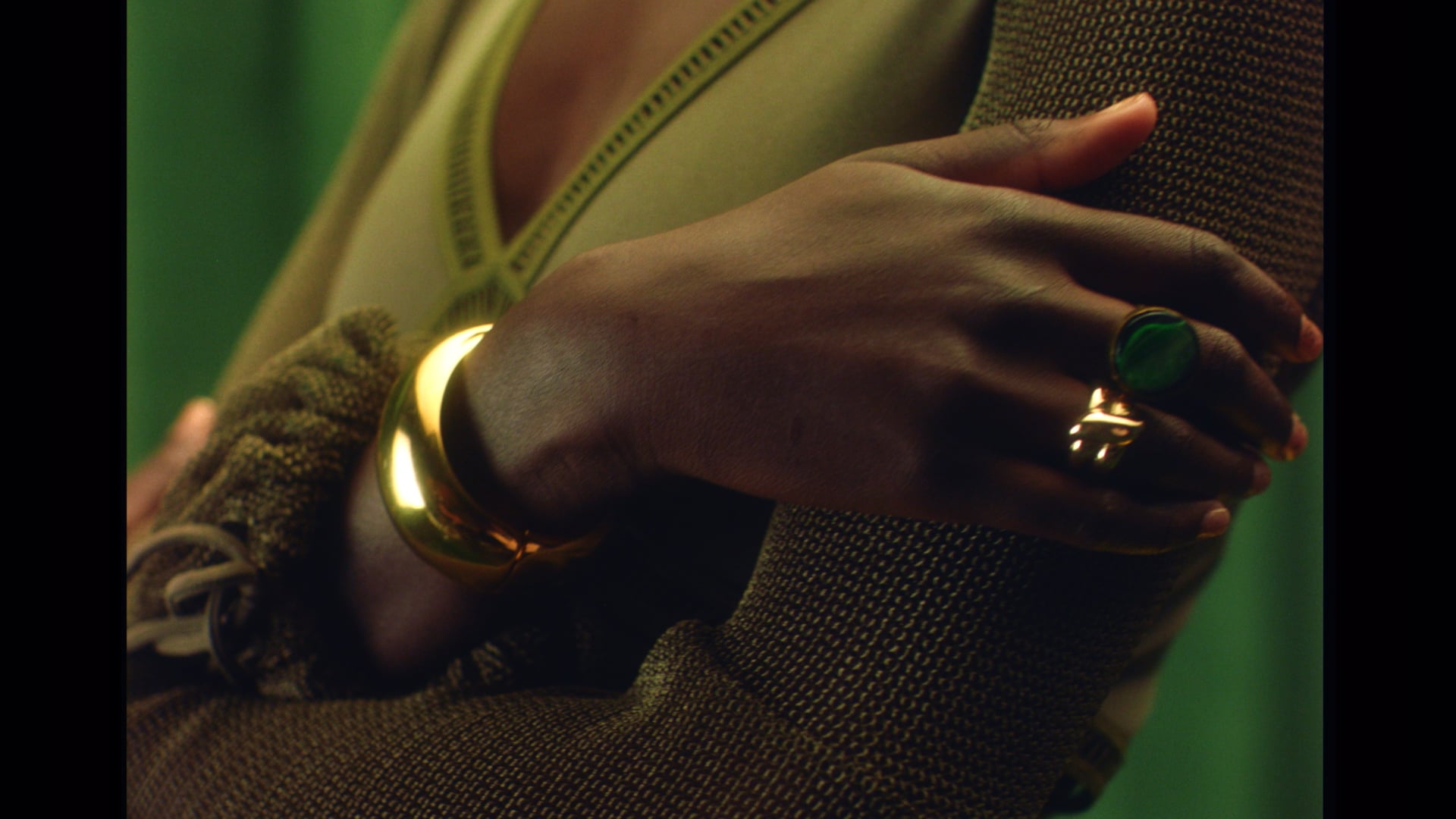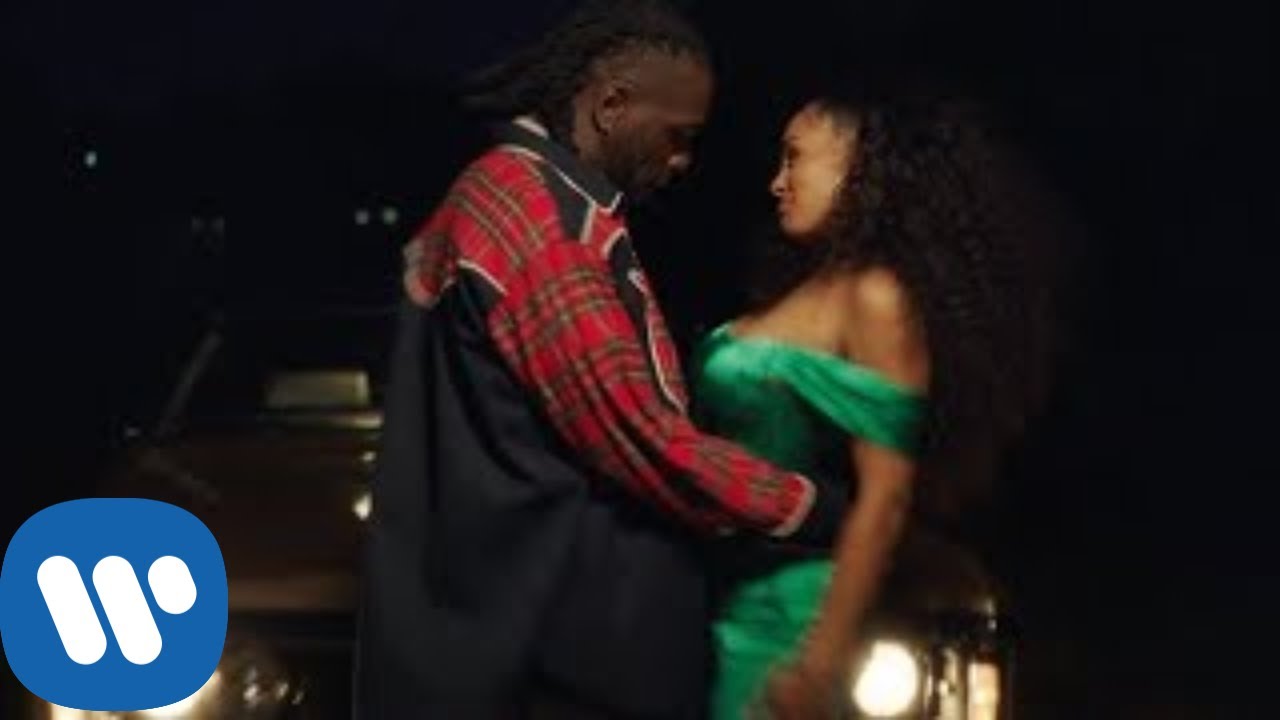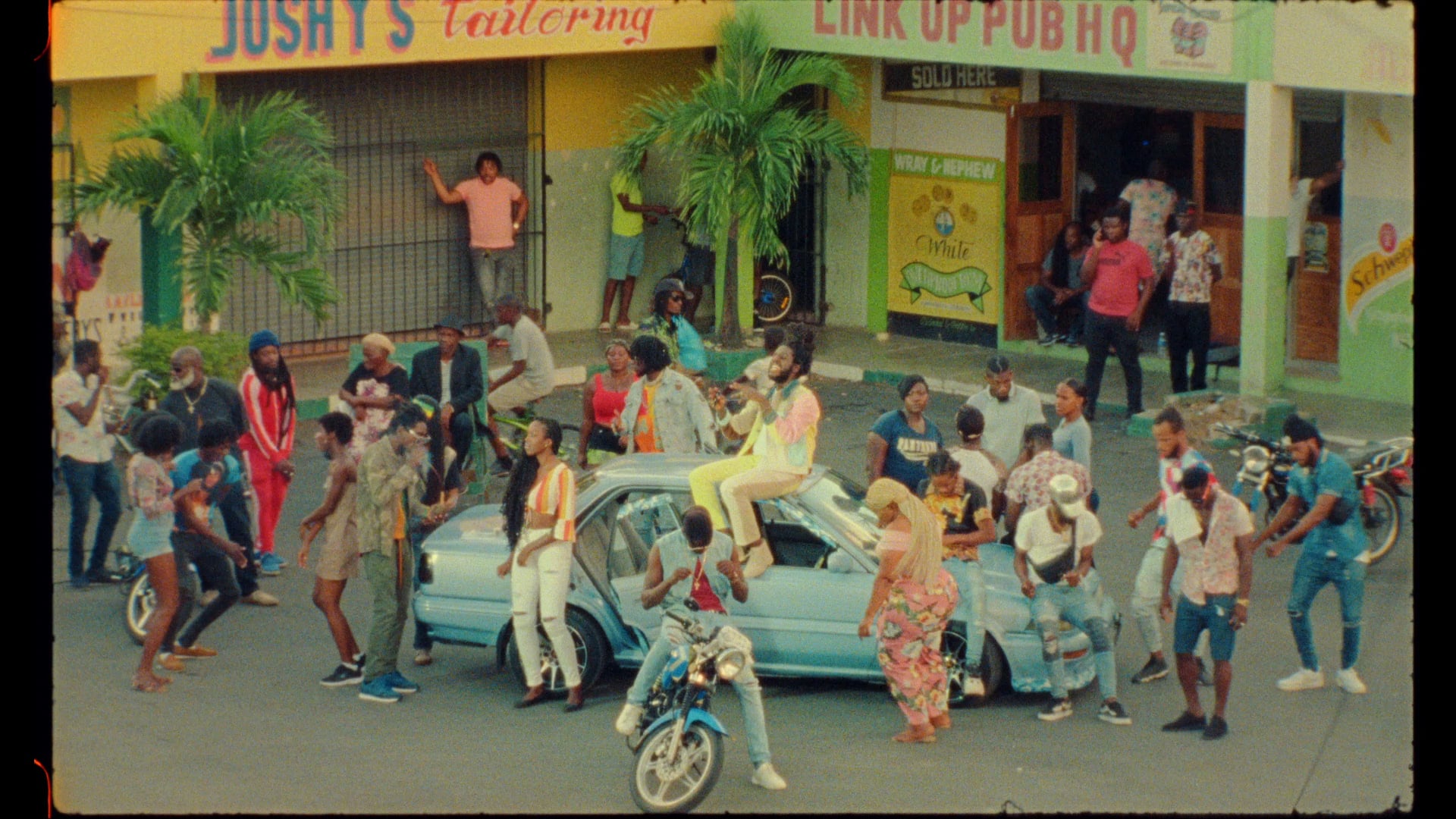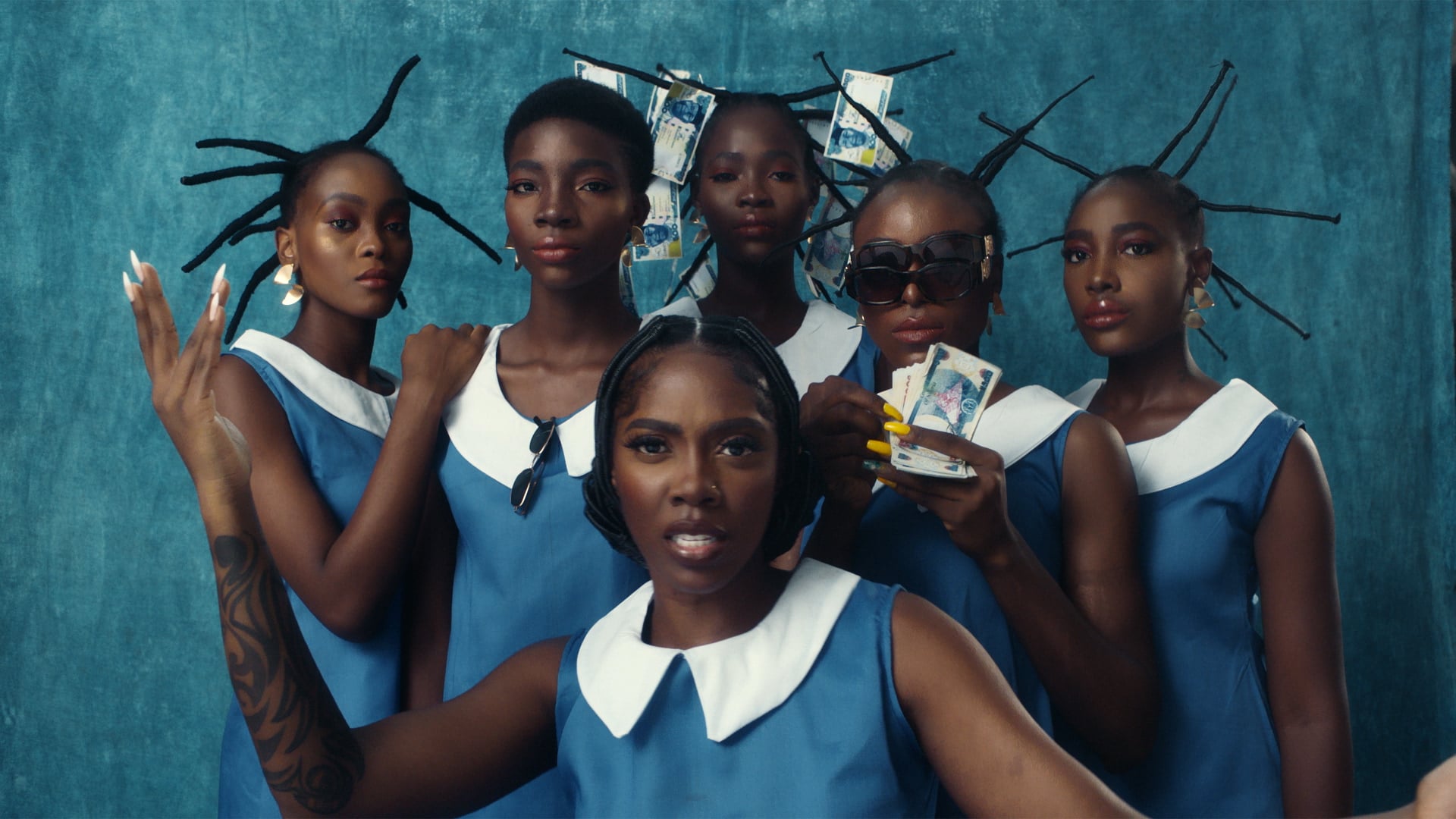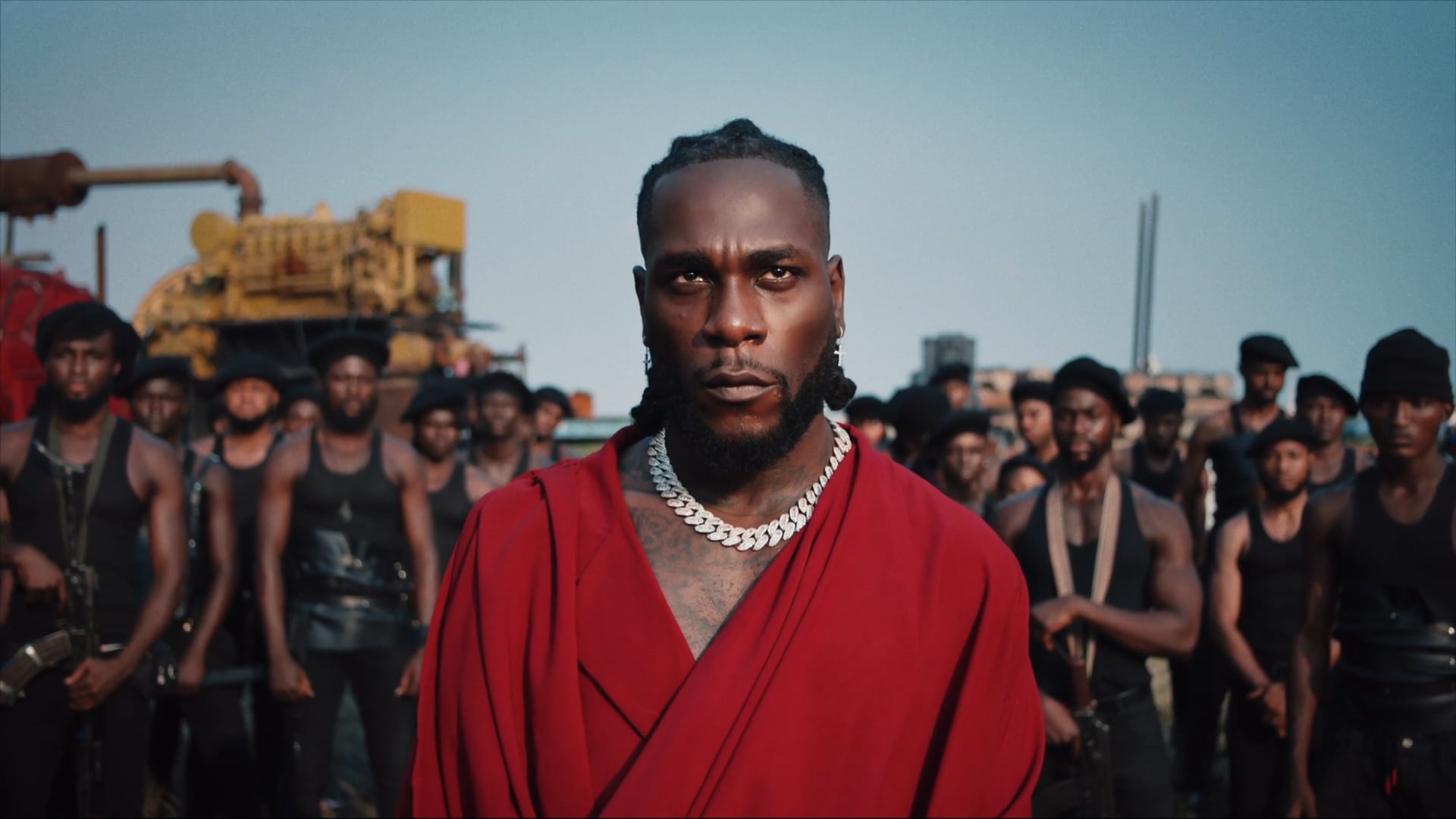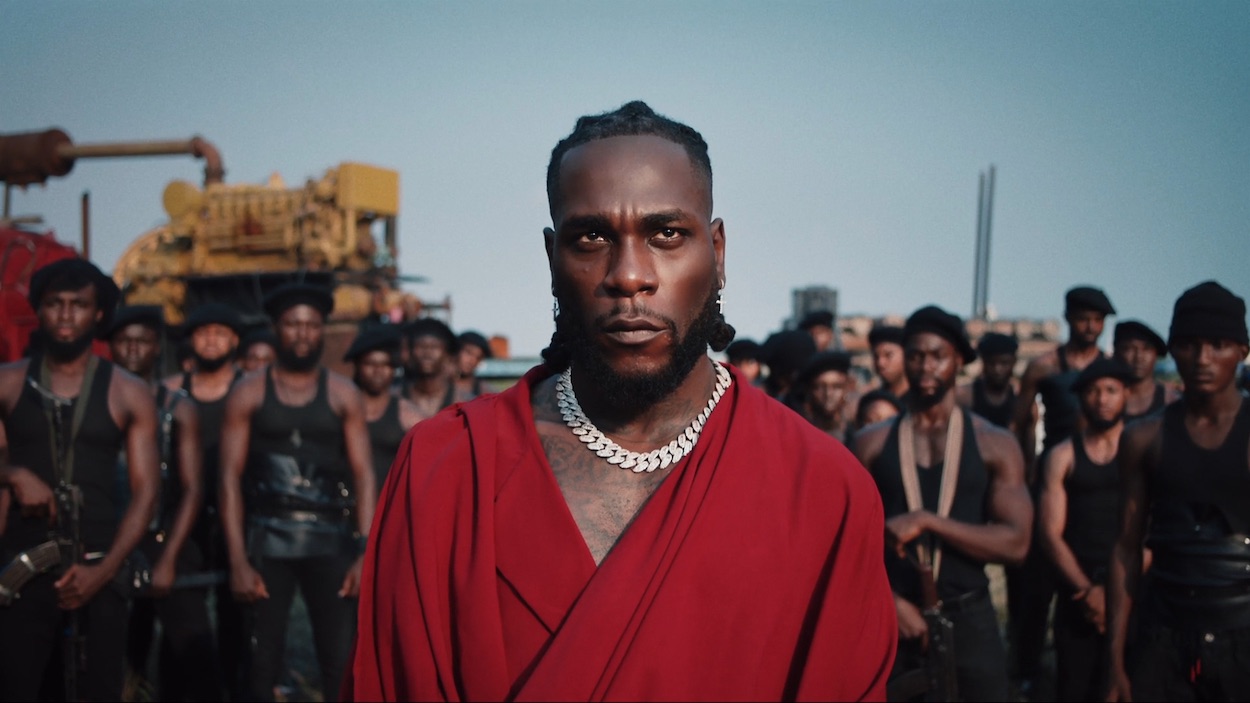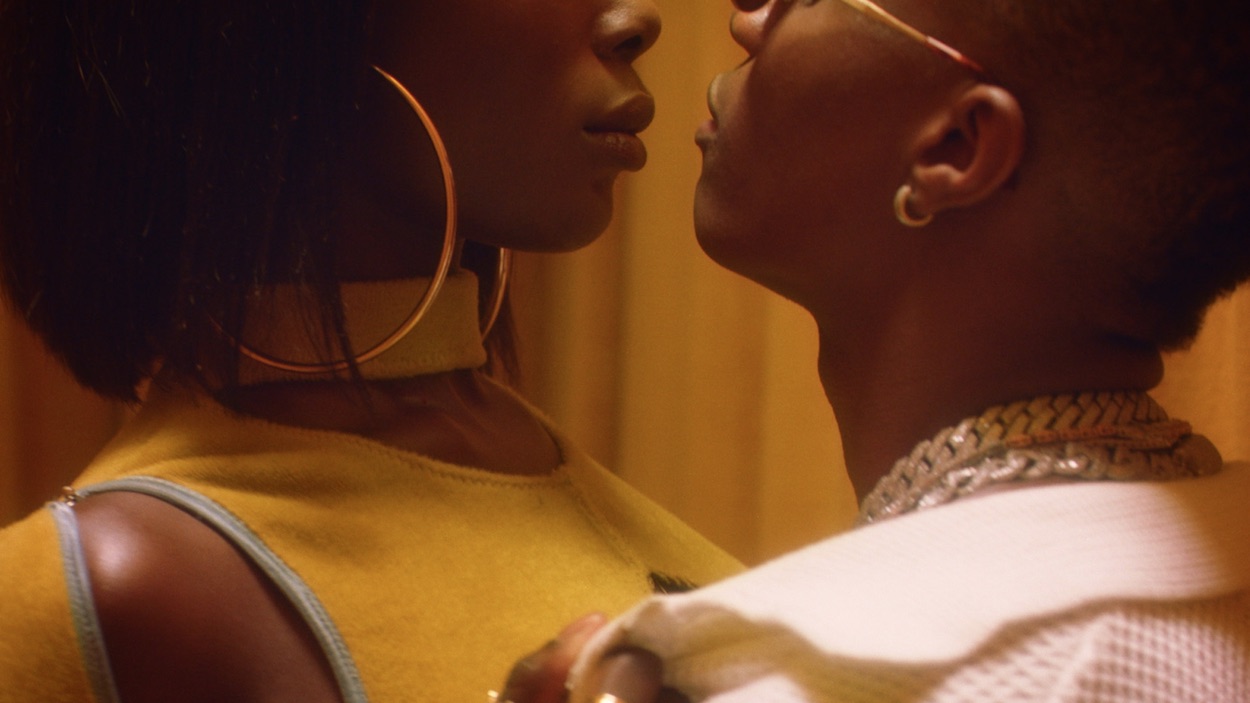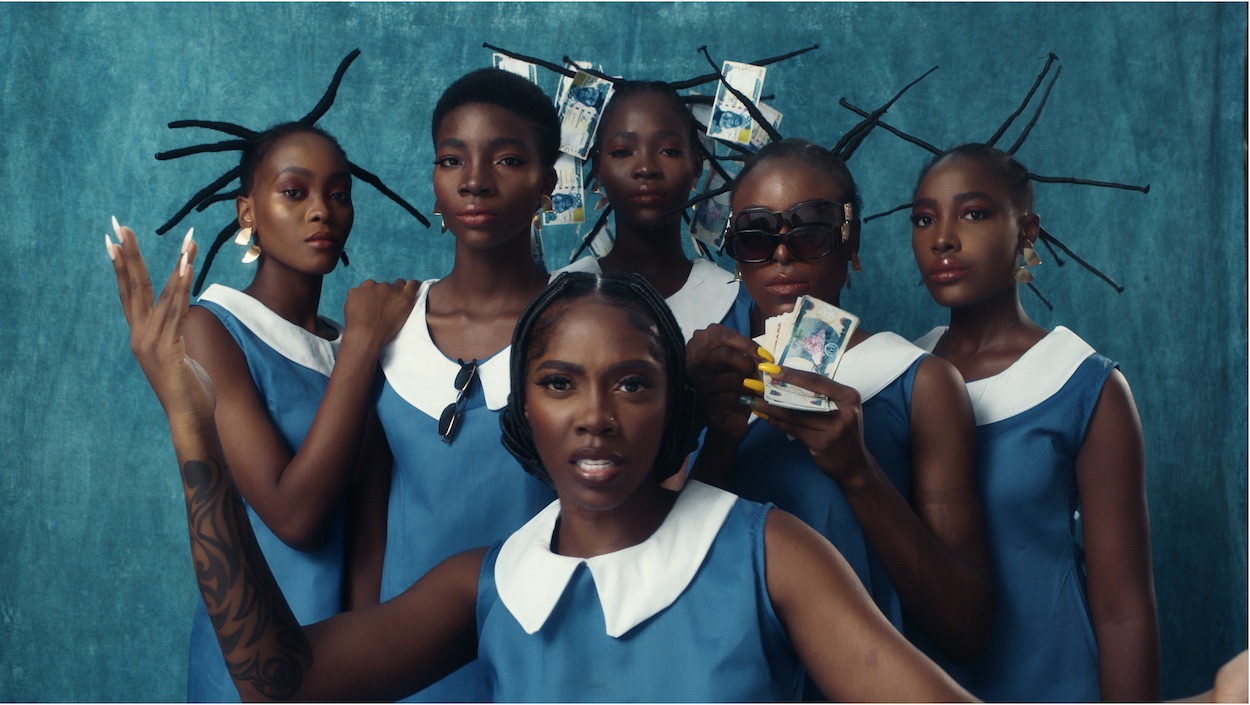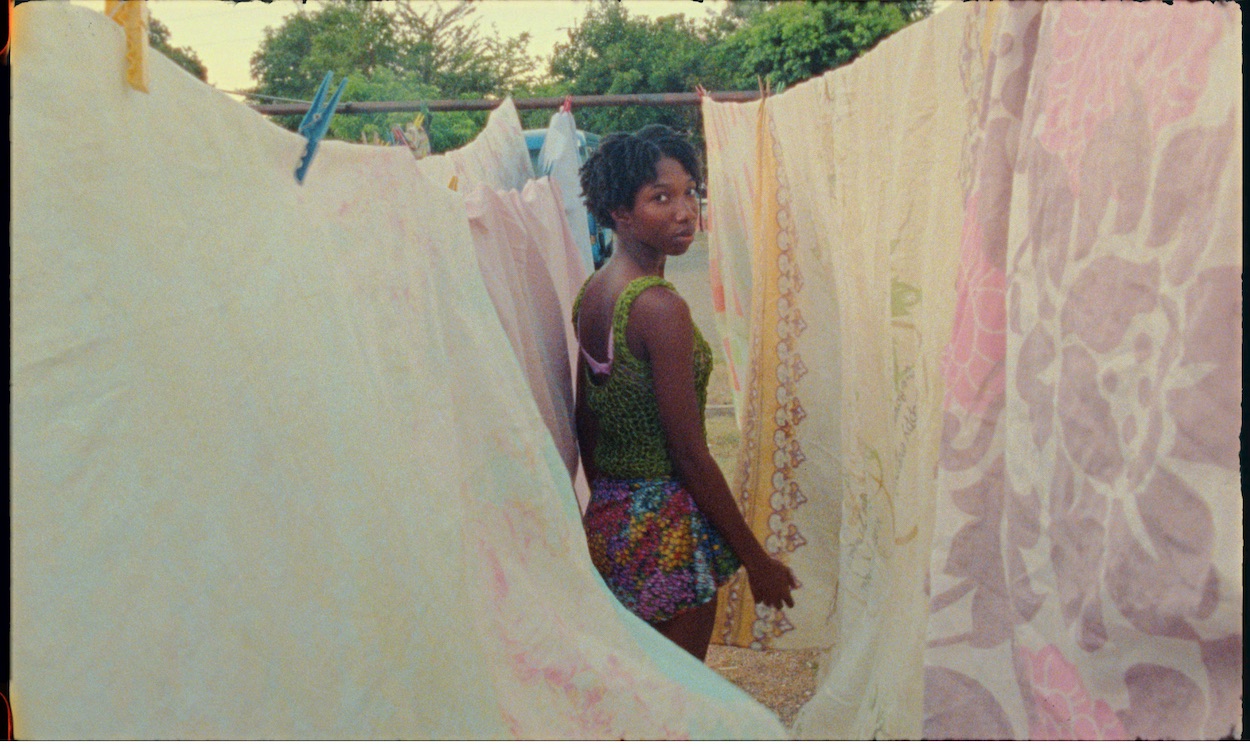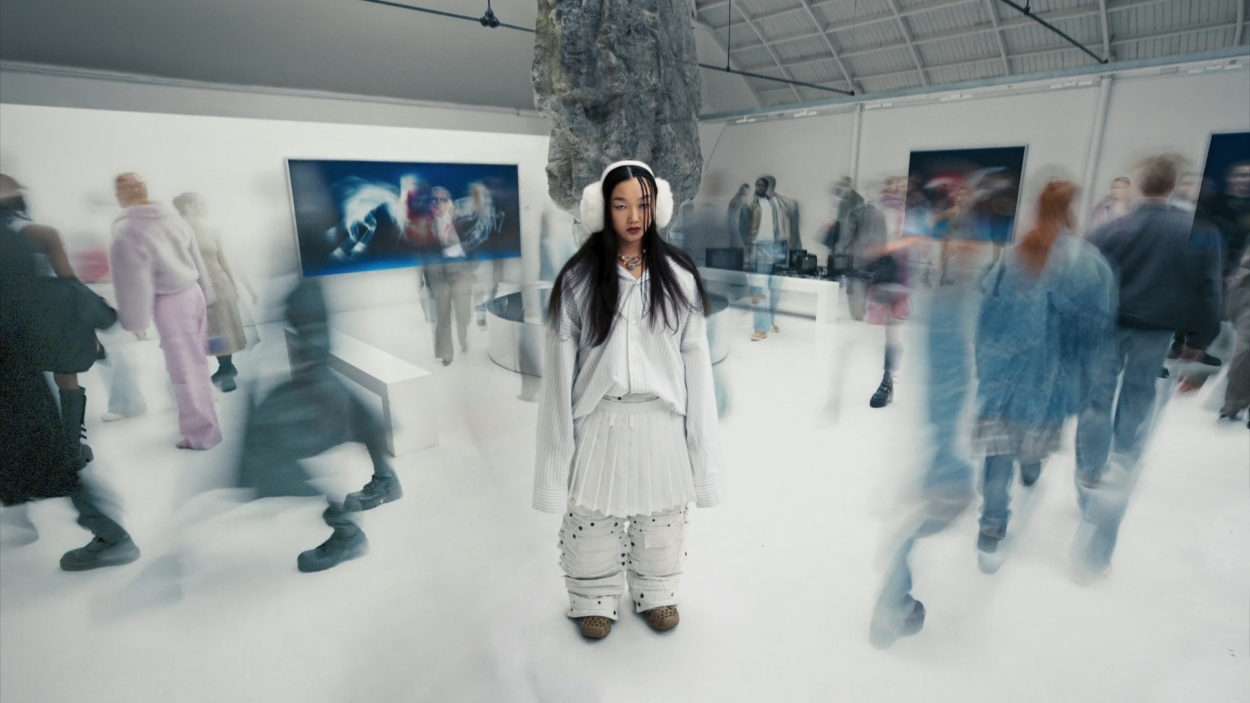Burna Boy, Monsters You Made
You started making films while studying for a degree in accounting. That’s quite a pivot – tell us a bit about your journey into filmmaking.
You know, I always wanted to be my own boss. I’ve actually never had a job. I went into accounting because I didn’t want to do law. I saw someone reading a law book on the train and it was so big I switched courses that same day. I figured I could memorise numbers easier than all those words.
Whilst at uni, I used my loans to buy my cameras and I was shooting kind of anything and everything, from music videos to product shoots to weddings to dog training videos. Pretty much anything I could get my hands on, which kept me constantly editing and finding new creative solutions. I think it laid the foundation for me as a director.
Your heritage is Nigerian but you’ve never lived there – you grew up in London and Texas. Does that ‘insider/outsider’ status give you a useful perspective as a filmmaker, i.e. cultural insights and understanding, but with a certain objectivity?
Definitely does. Nigerian culture is a very strong culture and one that Nigerians wear proudly. Pride is everything, so you tend to carry yourself a certain way. But experiencing this outside of Nigeria is different, because you’re a fish out of water. In my case, I was experiencing this from the UK and US – so I really had the experience of an African in the diaspora whilst collating all my experiences from the country I lived in. I feel it really gives me a well-rounded understanding/perspective of what is palatable and still relatable for both audiences…the African at home, and the African abroad…as well keeping it interesting for someone from a completely different culture.
WhizzKid, No Stress
Amongst the high-profile artists you’ve worked with, Afrobeat star Burna Boy is one of your longterm collaborators. Tell us a bit about your creative relationship and how that’s evolved.
I’ve worked with Burna on at least 5 videos now. And it’s been exciting because, as he evolves as an artist, I’m also constantly evolving as a creative and we link up and create more and more interesting work each time. We normally have a quick phone call and then I pop out a treatment: we go from there and it’s usually very sweet. No middlemen, just ideas. The good part about frequent collaborations is there’s a language that you begin to speak creatively with each other, and the conversation gets better and better with time.
You also co-directed part of Beyonce’s Black is King visual album, released this summer. As an artist, Beyonce has such a strong sense of visual messages and aesthetic direction, what was it like working with her?
Black is King was a huge project with many creatives involved across the world. It was such a moment and I’m honoured to have been a part of it. I co-directed Brown Skin Girl and we produced the Lagos chapter of the film which was a somewhat surreal experience. Unfortunately, like many of the other creatives, I actually didn’t get to meet Beyonce. But we’ll link up soon and make something incredible. We’re both from Houston so it’s bound to happen one day!
Tiwa Savage, 49-99
One of the most memorable scenes in your video for Tiwa Savage’s 49-99 was famously inspired by Eliot Elisofon’s 1972 portraits of Congolese schoolgirls. Where else do you look for creative inspiration?
As corny as it sounds, but… life is inspiration. It’s the beautiful part of the work we do. We see something and either love it so much we reference it, or we log it subconsciously in our minds to be used in the future. Everything you see can influence your aesthetic. Magazines, art installations, furniture installations, class photos, people arrangements, architecture blogs, fashion pages. Never forget the endless Pinterest trawls… those are the best.
We love the mix of beauty and grit in your videos, many of which juxtapose inner-city locations with rich, vibrant colours and strong choreography. Are you more interested in authenticity or aesthetics?
Aesthetics is what we do, authenticity is what they feel. That’s probably the best way I can put it. I am particular about the way things are presented aesthetically, but ultimately, if it doesn’t feel authentic, I can’t stand by it. Chronixx Cool As A Breeze is a great example to me of authenticity in a film. We shot that in the middle of Tivoli Gardens in Kingston. Everything was real including the cast. Local. And aesthetically, it’s such an amazing spot. So when authenticity is perfectly paired with aesthetics, hopefully it’s something to write home about.
What have the practicalities of running a production services company across Africa taught you as a director?
Well, one thing for sure is it’s not easy to shoot. But when we were starting JM Films, we had a vision to bring the production level we have in the UK to Lagos, and eventually to the rest of Africa whilst building our industry from the inside. So we don’t only service, but really try and impact the way productions are run in Nigeria/Africa in the long term by putting practices in place. And it’s been going great.
What I’ve learned as a director, you can be the best in the world, but you need a solid crew around you. So for us making sure crew, logistics, and everything is on point in Africa is the step towards being able to realise our ideas. There are so many amazing creatives, and now there’s the infrastructure – whether you’re an African in the diaspora or at home wanting to make something happen.
Chronixx, Cool as the Breeze
Too often, we need reminding that Africa is a continent, not a country… How do you feel about the ‘pan-African’ aesthetic that’s become so prevalent in Afrobeat music videos? As a director who’s shot in Ghana, Nigeria and South Africa, how important is it to reflect each country’s unique culture and energy?
Africa is a big place. Sometimes we challenge, other times we embrace. Culture in general is such a beautiful thing. Respectfully pushing boundaries and provoking thought in your work is what makes people feel and think. I don’t think there’s necessarily a pan African aesthetic – if that’s prints and head wraps then you’ve only scratched the surface. There’s so much more to each country which one can be inspired from, so it’s always important to be sensitive to that when creating something that represents something as important as culture.
Since your productions involve overseas locations, large casts and crews, the global lockdown and travel restrictions must have hit you harder than most. How have you responded to the challenges of the pandemic?
ZOOM ZOOM ZOOM. I’ve shot complete music videos and commercials during lockdown via Zoom. Burna Boy’s Monsters You Made music video with over 150 cast was shot entirely remotely in Lagos, Nigeria. Whilst Smile for Wizkid, we shot in London (where I am), Lagos, and NYC remotely. It’s extraordinarily challenging – especially in places with notoriously bad connection – and of course I’d rather have been there. But this is the world that we live in now.
It’s been fun. Flying isn’t usually the fun part, it’s the action on the other side. That’s what I’ve been missing. Interacting with cast and crew, being on location, eating good food. We’ll get there soon again.
You’ve recently signed to RSA Films for commercials representation. Any exciting projects in the pipeline?
Definitely thrilled to be joining such a distinguished roster. I’ve been a fan of the work coming out of RSA since I started, so all smiles on this side. We’ve already had some exciting things come through so looking forward to hitting the ground running in 2021.
Interview by Selena Schleh
Meji Alabi website

